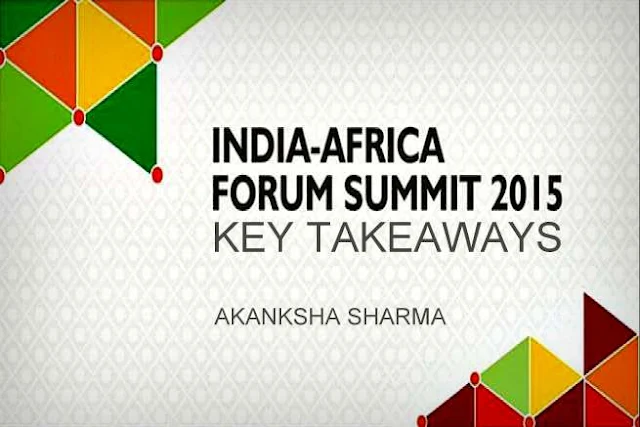-51,1,3D Technology,2,5G,10,Abkhazia,2,Abortion Laws,2,Academics,11,Accidents,23,Activism,2,Adani Group,8,ADB,14,ADIZ,1,Adults,1,Advertising,31,Advisory,2,Aerial Reconnaissance,13,Aerial Warfare,37,Aerospace,5,Affluence,1,Afghanistan,89,Africa,116,Agentic AI,1,Agile Methodology,2,Agriculture,22,AI Policy,1,Air Crash,13,Air Defence Identification Zone,1,Air Defense,9,Air Force,29,Air Pollution,2,Airbus,5,Aircraft Carriers,5,Aircraft Systems,6,Al Nusra,1,Al Qaida,4,Al Shabab,1,Alaska,1,ALBA,1,Albania,2,Algeria,3,Alibaba,1,American History,4,AmritaJash,10,Andaman & Nicobar,1,Antarctic,1,Antarctica,1,Anthropology,7,Anti Narcotics,12,Anti Tank,1,Anti-Corruption,4,Anti-dumping,1,Anti-Piracy,2,Anti-Submarine,1,Anti-Terrorism Legislation,1,Antitrust,4,APEC,1,Apple,3,Applied Sciences,2,AQAP,2,Arab League,3,Architecture,3,Arctic,6,Argentina,8,Armenia,31,Army,3,Art,3,Artificial Intelligence,89,Artillery,2,Arunachal Pradesh,2,ASEAN,13,Asia,72,Asia Pacific,25,Assassination,2,Asset Management,1,Astrophysics,2,Asymmetrical Warfare,1,ATGM,1,Atmospheric Science,1,Atomic.Atom,1,Augmented Reality,8,Australia,62,Austria,1,Automation,13,Automotive,134,Autonomous Flight,2,Autonomous Vehicle,4,Aviation,68,AWACS,2,Awards,17,Azerbaijan,18,Azeri,1,B2B,1,Bahrain,9,Balance of Payments,2,Balance of Trade,3,Bali,1,Balkan,10,Balochistan,3,Baltic,3,Baluchistan,8,Bangladesh,32,Banking,54,Bankruptcy,3,Basel,1,Bashar Al Asad,2,Battery Technology,3,Bay of Bengal,5,BBC,2,Beijing,1,Belarus,3,Belgium,1,Belt Road Initiative,3,Beto O'Rourke,1,BFSI,1,Bhutan,14,Big Data,30,Big Tech,1,Bihar,1,Bilateral Cooperation,23,BIMSTEC,1,Biodiversity,1,Biography,1,Biology,1,Biotechnology,4,Birth,1,BISA,1,Bitcoin,13,Black Lives Matter,1,Black Money,3,Black Sea,2,Blackrock,1,Blockchain,34,Blood Diamonds,1,Bloomberg,1,Boeing,22,Boko Haram,7,Bolivia,7,Bomb,3,Bond Market,4,Bonds,1,Book,11,Book Review,24,Border Conflicts,18,Border Control and Surveillance,8,Bosnia,2,Brand Management,14,Brazil,107,Brexit,22,BRI,6,BRICS,20,British,3,Broadcasting,16,Brunei,3,Brussels,1,Buddhism,1,Budget,6,Build Back Better,1,Bulgaria,1,Burma,2,Business & Economy,1380,C-UAS,1,California,5,Call for Proposals,1,Cambodia,8,Cameroon,1,Canada,59,Canadian Security Intelligence Service (CSIS),1,Cancer Research,1,Carbon Economy,9,CAREC,1,Caribbean,11,CARICOM,1,Caspian Sea,2,Catalan,3,Catholic Church,1,Caucasus,9,CBRN,1,Ceasefire,1,Cement,2,Censorship,1,Central African Republic,1,Central Asia,83,Central Asian,3,Central Banks,1,Central Eastern Europe,51,Certification,1,Chad,2,Chagos Archipelago,1,Chanakya,1,Charity,2,Chatbots,2,Chemicals,7,Chemistry,1,Child Labor,1,Child Marriage,1,Children,4,Chile,10,China,644,China+1,2,Christianity,1,CIA,1,CIS,5,Citizenship,2,Civil Engineering,2,Civil Liberties,5,Civil Rights,2,Civil Society,5,Civil Unrest,1,Civilization,1,Clean Energy,6,Climate,69,Climate Change,29,Climate Finance,2,Climate Studies,2,Clinical Research,3,Clinton,1,Cloud Computing,46,Coal,6,Coast Guard,3,Cocoa,1,Cognitive Computing,13,Cold War,5,Colombia,17,Commodities,6,Communication,13,Communism,3,Compliance,1,Computers,40,Computing,1,Conferences,2,Conflict,132,Conflict Diamonds,1,Conflict Resolution,54,Conflict Resources,1,Congo,2,Construction,5,Consumer Behavior,4,Consumer Confidence Index,1,Consumer Price Index,7,Consumption,1,COP26,4,COP28,1,COP29,1,Copper,3,Coronavirus,108,Corporate Communication,1,Corporate Governance,5,Corporate Social Responsibility,4,Corruption,4,Costa Rica,2,Counter Intelligence,15,Counter Terrorism,81,COVID,9,COVID Vaccine,6,CPEC,9,CPG,5,Credit,2,Credit Rating,6,Credit Risk,1,Credit Score,2,Crimea,4,Critical Minerals,2,CRM,1,Croatia,2,Crypto Currency,28,Cryptography,1,CSTO,1,Cuba,8,Culture,5,Currency,9,Customer Exeperience,1,Customer Relationship Management,1,Cyber Attack,15,Cyber Crime,2,Cyber Security & Warfare,122,Cybernetics,5,Cybersecurity,1,Cyberwarfare,16,Cyclone,1,Cyprus,5,Czech Republic,5,DACA,1,Dagestan,1,Dark Fleet,1,DARPA,3,Data,9,Data Analytics,36,Data Center,4,Data Privacy,1,Data Quality,1,Data Science,2,Database,3,Daughter.Leslee,1,Davos,1,DEA,1,DeBeers,1,Debt,14,Debt Fund,1,Decision Support System,5,DeepSeek,1,Defense,15,Defense Deals,8,Deflation,1,Deforestation,2,Deloitte,1,Democracy,23,Democrats,2,Demographic Studies,3,Demonetization,6,Denmark,1,Denmark. F-35,1,Denuclearization,1,Diamonds,1,Digital,39,Digital Currency,3,Digital Economy,11,Digital Marketing,10,Digital Payments,3,Digital Transformation,11,Diplomacy,15,Diplomatic Row,6,Disaster Management,4,Disinformation,2,Diversity & Inclusion,1,Djibouti,2,Documentary,3,DOGE,1,Doklam,2,Dokolam,1,Dominica,2,Donald Trump,77,Donetsk,2,Dossier,2,Drone Warfare,1,Drones,15,E-Government,2,E-International Relations,1,Earning Reports,4,Earth Science,2,Earthquake,9,East Africa,2,East China Sea,9,eBook,1,Ebrahim Raisi,1,ECB,1,eCommerce,11,Econometrics,2,Economic Indicator,2,Economic Justice,1,Economics,48,Economy,130,ECOWAS,2,Ecuador,4,Edge Computing,2,Editor's Opinion,112,Education,68,EFTA,1,Egypt,28,Election Disinformation,1,Elections,61,Electric Vehicle,17,Electricity,7,Electronics,9,Elon Musk,6,Emerging Markets,1,Employment,23,Energy,322,Energy Policy,28,Energy Politics,29,Engineering,24,England,2,Enterprise Software Solutions,9,Entrepreneurship,15,Environment,48,ePayments,17,Epidemic,6,ESA,1,Ethiopia,4,Eulogy,4,Eurasia,3,Euro,6,Europe,18,European Union,241,EuroZone,5,Exchange-traded Funds,2,Exclusive,2,Executive Order,1,Exhibitions,2,Explosives,1,Export Import,7,F-35,6,Facebook,10,Fake News,3,Fallen,1,FARC,2,Farnborough. United Kingdom,2,FATF,1,FDI,6,Featured,1518,Federal Reserve,8,Fidel Castro,1,FIFA World Cup,1,Fiji,1,Finance,19,Financial Markets,60,Financial Planning,2,Financial Statement,2,Finland,5,Fintech,17,Fiscal Policy,15,Fishery,3,Five Eyes,1,Floods,2,Food Security,27,Forces,1,Forecasting,3,Foreign Policy,13,Forex,5,France,37,Free Market,1,Free Syrian Army,4,Free Trade Agreement,1,Freedom,3,Freedom of Press,2,Freedom of Speech,2,French Polynesia,1,Frigate,1,FTC,1,Fujairah,97,Fund Management,1,Funding,23,Future,1,G20,10,G24,1,G7,4,Gaddafi,1,Gambia,2,Gambling,1,Gaming,2,Garissa Attack,1,Gas Price,24,GATT,1,Gaza,19,GCC,11,GDP,14,GDPR,1,Gender Studies,4,Geneal Management,1,General Management,1,Generative AI,14,Genetics,1,Geo Politics,106,Geography,2,Geoint,14,Geopolitics,12,Georgia,12,Georgian,1,geospatial,9,Geothermal,2,Germany,77,Ghana,3,Gibratar,1,Gig economy,1,Glaciology,1,Global Combat Air Programme,1,Global Markets,3,Global Perception,1,Global Trade,106,Global Warming,1,Global Water Crisis,11,Globalization,3,Gold,5,Golden Dome,1,Google,20,Gorkhaland,1,Government,132,Government Analytics,1,Government Bond,1,Government contracts,1,GPS,1,Greater Asia,209,Greece,14,Green Bonds,1,Green Energy,3,Greenland,2,Gross Domestic Product,2,GST,2,Gujarat,6,Gulf of Tonkin,1,Gun Control,4,Hacking,6,Haiti,2,Hamas,13,Hasan,1,Health,8,Healthcare,74,Heatwave,2,Helicopter,12,Heliport,1,Hezbollah,3,High Altitude Warfare,1,High Speed Railway System,1,Hillary 2016,1,Hillary Clinton,1,Himalaya,1,Hinduism,2,Hindutva,4,History,10,Home Security,1,Honduras,2,Hong Kong,7,Horn of Africa,5,Housing,17,Houthi,16,Howitzer,1,Human Development,32,Human Resource Management,5,Human Rights,7,Humanitarian,3,Hungary,3,Hunger,3,Hydrocarbon,4,Hydrogen,5,IAEA,2,ICBM,1,Iceland,2,ICO,1,Identification,2,IDF,1,Imaging,2,IMEEC,2,IMF,79,Immigration,23,Impeachment,1,Imran Khan,1,Independent Media,73,India,753,India's,1,Indian Air Force,19,Indian Army,7,Indian Nationalism,1,Indian Navy,28,Indian Ocean,27,Indices,1,Indigenous rights,1,Indo-Pacific,11,Indonesia,29,IndraStra,1,Indus Water Treaty,1,Industrial Accidents,4,Industrial Automation,2,Industrial Safety,4,Inflation,10,Infographic,1,Information Leaks,1,Infrastructure,4,Innovations,22,Insider Trading,1,Insolvency and Bankruptcy,1,Insurance,4,Intellectual Property,3,Intelligence,5,Intelligence Analysis,9,Interest Rate,4,International Business,13,International Law,11,International Relations,9,Internet,54,Internet of Things,35,Interview,8,Intra-Government,5,Investigative Journalism,4,Investment,34,Investor Relations,1,IPEF,1,iPhone,1,IPO,4,Iran,225,Iraq,54,IRGC,1,Iron & Steel,5,ISAF,1,ISIL,9,ISIS,33,Islam,12,Islamic Banking,1,Islamic State,86,Israel,171,Israel-Iran War,6,ISRO,2,IT ITeS,136,Italy,12,Ivory Coast,1,Jabhat al-Nusra,1,Jack Ma,1,Jamaica,3,Japan,109,JASDF,1,Jihad,1,JMSDF,1,Joe Biden,8,Joint Strike Fighter,5,Jordan,7,Journalism,7,Judicial,5,Julian Assange,1,Justice System,3,Kamala Harris,3,Kanchin,1,Kashmir,13,Kaspersky,1,Kazakhstan,28,Kenya,6,Khalistan,2,Kiev,1,Kindle,700,Knowledge,1,Knowledge Management,4,Korean Conflict,1,Kosovo,2,Kubernetes,1,Kurdistan,9,Kurds,10,Kuwait,7,Kyrgyzstan,9,Labor Laws,10,Labor Market,4,Ladakh,1,Land Reforms,3,Land Warfare,21,Languages,1,Laos,2,Large Language Model,1,Large language models,1,Laser Defense Systems,1,Latin America,87,Law,6,Leadership,3,Lebanon,12,Legal,11,LGBTQ,2,Li Keqiang,1,Liberalism,1,Library Science,1,Libya,14,Liechtenstein,1,Lifestyle,3,Light Battle Tank,1,Linkedin,1,Lithium,1,Lithuania,1,Littoral Warfare,2,Livelihood,3,LNG,2,Loans,12,Lockdown,1,Lone Wolf Attacks,3,Lugansk,2,Macedonia,1,Machine Learning,8,Madagascar,1,Mahmoud,1,Main Battle Tank,3,Malaysia,12,Maldives,13,Mali,7,Malware,2,Management Consulting,7,Manmohan Singh,1,Manpower,1,Manto,1,Manufacturing,17,Marijuana,1,Marine Biology,1,Marine Engineering,3,Maritime,52,Market Research,2,Marketing,38,Mars,2,Martech,10,Mass Media,30,Mass Shooting,1,Material Science,2,Mauritania,1,Mauritius,3,MDGs,1,Mechatronics,2,Media War,1,MediaWiki,1,Medical,1,Medicare,1,Mediterranean,12,MENA,6,Mental Health,4,Mercosur,2,Mergers and Acquisitions,19,Meta,4,Metadata,2,Metals,4,Mexico,14,Micro-finance,4,Microsoft,12,Migration,20,Mike Pence,1,Military,114,Military Aid,1,Military Exercise,14,Military Operation,1,Military Service,2,Military-Industrial Complex,4,Mining,16,Missile Launching Facilities,7,Missile Systems,61,Mobile Apps,3,Mobile Communications,12,Mobility,5,Modi,8,Moldova,1,Monaco,1,Monetary Policy,6,Money Market,2,Mongolia,13,Monkeypox,1,Monsoon,1,Montreux Convention,1,Moon,4,Morocco,3,Morsi,1,Mortgage,3,Moscow,2,Motivation,1,Mozambique,1,Mubarak,1,Multilateralism,2,Mumbai,1,Muslim Brotherhood,2,Mutual Funds,3,Myanmar,31,NAFTA,3,NAM,2,Namibia,1,Nanotechnology,4,Narendra Modi,4,NASA,14,NASDAQ,1,National Identification Card,1,National Security,9,Nationalism,2,NATO,34,Natural Disasters,16,Natural Gas,34,Natural Language Processing,1,Nauru,1,Naval Aviation,1,Naval Base,5,Naval Engineering,25,Naval Intelligence,2,Naval Postgraduate School,2,Naval Warfare,52,Navigation,2,Navy,23,NBC Warfare,2,NDC,1,Nearshoring,1,Negotiations,2,Nepal,15,Netflix,1,Neurosciences,7,New Caledonia,1,New Delhi,4,New Normal,1,New York,5,New Zealand,7,News,1409,News Publishers,1,Newspaper,1,NFT,1,NGO,1,Nicaragua,1,Niger,3,Nigeria,10,Nikki Haley,1,Nirbhaya,1,Noble Prize,1,Non Aligned Movement,1,Non Government Organization,4,Nonproliferation,2,North Africa,24,North America,57,North Korea,64,Norway,5,NSA,1,NSG,2,Nuclear,42,Nuclear Agreement,35,Nuclear Doctrine,2,Nuclear Energy,8,Nuclear Fussion,1,Nuclear Propulsion,2,Nuclear Security,50,Nuclear Submarine,1,NYSE,3,Obama,3,ObamaCare,2,Obituary,1,OBOR,15,Ocean Engineering,1,Oceania,2,OECD,5,OFID,5,Oil & Gas,397,Oil Gas,7,Oil Price,77,Olympics,2,Oman,26,Omicron,1,Oncology,1,One Big Beautiful Bill Act,1,Online Education,5,Online Reputation Management,1,OPEC,130,Open Access,1,Open Journal Systems,2,Open Letter,1,Open Source,4,OpenAI,2,Operation Unified Protector,1,Operational Research,4,Opinion,797,Opinon Poll,1,Optical Communications,1,Outbreak,1,Pacific,6,Pakistan,196,Pakistan Air Force,3,Pakistan Army,1,Pakistan Navy,3,Palestine,31,Palm Oil,1,Panama,1,Pandemic,84,Papal,1,Paper,3,Papers,110,Papua New Guinea,2,Paracels,1,Paraguay,1,Partition,1,Partnership,2,Party Congress,1,Passport,1,Patents,2,PATRIOT Act,1,Payment Orchestration,1,Peace Deal,7,Peacekeeping Mission,1,Pegasus,1,Pension,2,People Management,1,Persian Gulf,19,Peru,6,Petrochemicals,2,Petroleum,20,Pharmaceuticals,16,Philippine,1,Philippines,19,Philosophy,2,Photos,3,Physics,1,Pipelines,7,PLA,2,PLAN,4,Plastic Industry,2,Poland,9,Polar,1,Policing,1,Policy,8,Policy Brief,6,Political Studies,1,Politics,65,Polynesia,3,Pope,2,Population,9,Ports,1,Portugal,1,Poverty,8,Power Transmission,7,Prashant Kishor,1,Preprint,1,President APJ Abdul Kalam,2,Presidential Election,35,Press Release,158,Prison System,1,Privacy,18,Private Debt Fund,1,Private Equity,4,Private Military Contractors,2,Privatization,1,Programmatic Advertising,1,Programming,1,Project Management,4,Propaganda,5,Protests,16,Psychology,3,Public Health,1,Public Policy,55,Public Relations,1,Public Safety,7,Publications,1,Publishing,8,Purchasing Managers' Index,1,Putin,7,Q&A,1,Qatar,117,QC/QA,1,Qods Force,1,Quad,1,Quantum Computing,4,Quantum Materials,1,Quantum Physics,4,Quantum Science,1,Quarter Results,2,Racial Justice,2,RADAR,2,Rahul Guhathakurta,4,Railway,10,Raj,1,Ranking,4,Rape,1,Rapid Prototyping,1,Rare Earth Elements,4,RBI,1,RCEP,2,Real Estate,7,Real Money Gaming,1,Recall,4,Recession,2,Red Sea,7,Referendum,5,Reforms,18,Refugee,23,Regional,4,Regulations,2,Rehabilitation,1,Religion,1,Religion & Spirituality,9,Renewable,19,Report,6,Reports,59,Repository,1,Republicans,4,Rescue Operation,2,Research,5,Research and Development,26,Restructuring,1,Retail,36,Revenue Management,1,Revenue-based Financing,1,Rice,1,Risk Management,7,Robotics,8,Rohingya,5,Romania,3,Royal Canadian Air Force,1,Rupee,1,Russia,345,Russian Navy,6,S&P500,1,Saab,1,Saadat,1,SAARC,6,Safety,1,SAFTA,1,SAM,2,Samoa,1,Sanctions,6,SAR,1,SAT,1,Satellite,17,Saudi Arabia,132,Scam,1,Scandinavia,6,Science & Technology,424,Science Fiction,1,SCO,5,Scotland,6,Scud Missile,1,Sea Lanes of Communications,4,Search Engine,1,SEBI,4,Securities,2,Security,6,Semiconductor,25,Senate,4,Senegal,1,SEO,5,Serbia,4,Services Sector,1,Seychelles,6,SEZ,1,Shadow Bank,1,Shale Gas,4,Shanghai,1,Sharjah,12,Shia,6,Shinzo Abe,1,Shipping,12,Shutdown,2,Siachen,1,Sierra Leone,1,Signal Intelligence,1,Sikkim,5,Silicon Valley,1,Silk Route,6,Silver,1,Simulations,2,Sinai,1,Singapore,19,Situational Awareness,20,Small Modular Nuclear Reactors,1,Smart Cities,7,Smartphones,1,Social Media,3,Social Media Intelligence,41,Social Policy,40,Social Science,1,Social Security,1,Socialism,1,Sociology,1,Soft Power,1,Software,8,Software Engineering,1,Solar Energy,17,Somalia,6,South Africa,20,South America,57,South Asia,544,South China Sea,38,South East Asia,94,South Korea,76,South Sudan,4,Sovereign Wealth Funds,2,Soviet,2,Soviet Union,9,Space,49,Space Station,3,Space-based Reconnaissance,1,Spaceflight,2,Spain,9,Special Education,1,Special Forces,1,Sports,3,Sports Diplomacy,1,Spratlys,1,Sri Lanka,26,Stablecoin,1,Stamps,1,Startups,45,State,1,State of the Union,1,Statistics,1,STEM,1,Stephen Harper,1,Stock Markets,38,Storm,2,Strategy Games,5,Strike,1,Sub-Sahara,4,Submarine,17,Sudan,6,Sunni,6,Super computing,1,Supply Chain Management,56,Surveillance,14,Survey,5,Sustainable Development,19,Swami Vivekananda,1,Sweden,4,Switzerland,7,Syria,118,Taiwan,38,Tajikistan,12,Taliban,17,Tamar Gas Fields,1,Tamil,1,Tanzania,4,Tariff,18,Tata,3,Taxation,29,Tech Fest,1,Technology,13,Tel-Aviv,1,Telecom,25,Telematics,1,Territorial Disputes,1,Terrorism,79,Testing,2,Texas,4,Thailand,13,The Middle East,689,The Netherlands,1,Think Tank,321,Tibet,3,TikTok,3,Tim Walz,1,Tobacco,1,Tonga,1,Total Quality Management,2,Town Planning,3,TPP,2,Trade Agreements,18,Trade Talks,4,Trade War,25,Trademarks,1,Trainging and Development,1,Transcaucasus,22,Transcript,4,Transpacific,2,Transportation,52,Travel and Tourism,19,Tsar,1,Tunisia,7,Turkey,78,Turkmenistan,10,U.S. Air Force,3,U.S. Dollar,2,UAE,143,UAV,23,UCAV,1,Udwains,1,Uganda,1,Ukraine,124,Ukraine War,41,Ummah,1,UNCLOS,8,Unemployment,2,UNESCO,1,UNHCR,1,UNIDO,2,United Kingdom,88,United Nations,30,United States,876,University and Colleges,4,Uranium,2,Urban Planning,11,US Army,12,US Army Aviation,1,US Congress,2,US Dollar,1,US FDA,1,US Navy,18,US Postal Service,1,US Senate,1,US Space Force,2,USA,16,USAF,22,USV,1,UUV,1,Uyghur,3,Uzbekistan,13,Valuation,1,Vanuatu,1,Vatican,4,Vedant,1,Venezuela,23,Venture Capital,4,Vibrant Gujarat,1,Victim,1,Videogames,1,Vietnam,33,Virtual Reality,7,Vision 2030,1,VPN,1,Wahhabism,3,Wall Street,1,War,1,War Games,1,Warfare,1,Water,18,Water Politics,8,Weapons,11,Wearable,2,Weather,2,Webinar,1,WeChat,1,WEF,3,Welfare,1,West,2,West Africa,19,West Bengal,2,Western Sahara,3,Whales,1,White House,2,Whitepaper,2,WHO,3,Wholesale Price Index,1,Wikileaks,2,Wikipedia,5,Wildfire,1,Wildlife,3,Wind Energy,1,Windows,1,Wireless Security,1,Wisconsin,2,Women,10,Women's Right,14,Workers Union,1,Workshop,1,World Bank,41,World Economy,33,World Expo,1,World Peace,10,World War I,1,World War II,3,WTO,6,Wyoming,1,Xi Jinping,9,Xinjiang,2,Yemen,31,Yevgeny Prigozhin,1,Zbigniew Brzezinski,1,Zimbabwe,2,



















